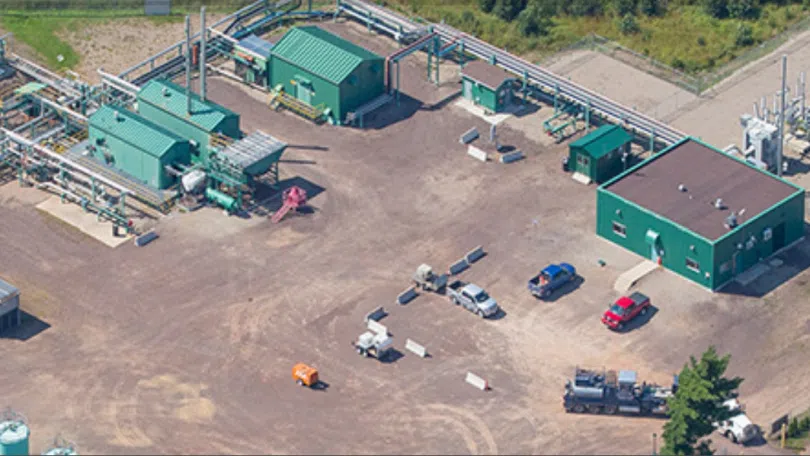
Image: Corridor Resources website
Corridor Resources, a Halifax-based junior oil and gas company with assets near Sussex will be taken over by a new management and change its name to Headwater Exploration Inc.
The deal that includes up to $50-million in private share sales came after a strategic review the company started in October last year.
Corridor’s new management constitutes executives whose credentials boasts the building of three oil and gas companies in Saskatchewan and Alberta – Raging River Exploration, Wild Stream Exploration, and Wild River Resources – that led to profitable takeovers.
Neil Roszell will take over as chairman and CEO, replacing Steve Moran; Jason Jaskela will serve as president and COO; Ali Horvath will be VP Finance and CFO; Jonathan Grimwood will serve as VP Exploration; and, Terry Danku will be VP Engineering. All are investors in the company.
“We believe that the transaction is transformative for Corridor and its shareholders, combining the strength of our existing financial position and cash flow generating asset with the proven expertise of Neil Roszell and his team,” Moran said in a release earlier this week.
“This is an exceptional opportunity to invest in a company with a material cash position and strategic assets that provide significant free cash flow at current commodity prices,” Roszell said in the release. “The Headwater management team is energized and truly believes that the Corridor platform can lead us into becoming a leading Canadian energy producer.”
The company’s board of directors will also be re-constituted to include Roszell and Jaskela, as well as four new independent directors. Two members of Corridor’s current board will remain.
Roszell and his team plan to revive Corridor’s production and reserve assets in the McCully Field near Sussex. They see “unabated growth” there, noting that Atlantic Canada “remains undersupplied” by regional gas by around 140 million cubic feet per day (mmcf/d).
The new management has identified a number of drilling and re-completion projects that can significantly boost production from the field, they said.
Following the New Brunswick government’s order-in-council in June last year that exempts Corridor’s McCully Field from the province-wide fracking moratorium, Roszell and his team plans to consult with First Nations and pursue the exemption that would allow the company to continue development of the McCully Field.
The McCully Field produces mainly in the winter months at an average rate that’s expected to be around 7.5 to 8 mmcf/d this year, and then it shuts down for the rest of the year. This strategy allows the company to maximize revenue during peak demand months when it typically gets a significant premium to Nymex Henry Hub gas pricing.
Currently, Corridor owns and operates a 49 km pipeline lateral to the Maritimes & Northeast Pipeline and a natural gas processing facility with a processing capacity of 35 mmcf/d.
Huddle reached out to Corridor Resources, but didn’t get a response by the time of publishing.
Natural gas extraction has returned as a hot issue in New Brunswick after the Higgs government, in mid 2019, lifted a province-wide moratorium on fracking that the Liberal government put in place in 2014, at least in areas the government says want the development to happen. In this case, they decided the Sussex region was open to fracking for gas.
The move prompted swift protests from environmentalists and Indigenous communities, with Indigenous leaders accusing the government of failing to properly consult them before making a decision on the issue.
In June last year, the chiefs of the nine Mi’kmaq communities in the province, represented by Mi’gmawe’l Tplu’taqnn Inc., voiced their disagreement with the move.
RELATED: Indigenous Leaders Blindsided, Business Leaders Unsurprised That Shale Gas Moratorium Is Lifted
Chief David Peter-Paul of Pabineau First Nation, one of the communities represented, told Huddle at the time that Premier Blaine Higgs needs to step up communication with the First Nations people.
“This is Mi’kmaq territory where it’s being proposed around the Sussex region,” he said. “We still hunt, we still fish, we still trap, we still gather resources across that territory. We still exercise our aboriginal and our treaty rights in that area, in particular, Fort Folly First Nation.”
RELATED: Why These Businesspeople From Sussex Are Against Fracking
Inda Intiar is a Reporter with Huddle Today, an Acadia Broadcasting content partner.



